Search Results
Showing results 21 to 40 of 52

Color Spy
Source Institutions
In this activity (16th on the page), learners play a variation of the "I Spy" game to explore color. Learners work in teams with each team assigned a color.

Animal Guess Who
Source Institutions
In this game, learners take turns guessing toy animals from around their house based on the toy's characteristics.

Taste Match Game
Source Institutions
In this activity (3rd activity on the page), learners taste test different foods and categorize them as sweet, bitter, sour, or salty. Learners compare their results with the group.
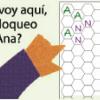
Bloqueo
Source Institutions
Jugando a este juego, los chicos desarrollan habilidades de lógica, geometría, y visualización espacial. Los jugadores empiezan con una red de hexágonos vacía.

Backard Bioblitz Bonanza
Source Institutions
In this activity, learners will observe and record living things with in outlined outside space.
Fish Family Identification
Source Institutions
In this game, students will become familiar with fish shapes, learn that fish within a given taxonomic family have similar body shapes, and discuss how different body shapes enable fish to survive in

Buoyant Bubbles
Source Institutions
What keeps bubbles and other things, like airplanes, floating or flying in the air?

Work Up An Appetite
Source Institutions
In this activity, learners participate in fun movement activities while playing on a giant game board. Use this activity to get learners involved in physical activity.

Exploring Size: Powers of Ten
Source Institutions
In this activity, learners play a card game that explores the relative sizes of various objects. Learners compete to organize their hand of cards into lists of objects from largest to smallest.
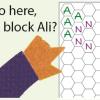
Touch and Go
Source Institutions
As learners play this game, they develop logic, geometry, and spatial visualization skills. Players start out with an empty hexagonal grid.
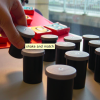
Shake and Match
Source Institutions
In this activity, learners create a hearing based memory game that they can share with friends.
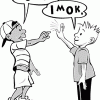
I M O K. U R O K.: You Can Make Sentences Without Words!
Source Institutions
Can you read the sentence "I C U"? Not really - but if you say each letter aloud, you'll say the simple sentence, "I see you." What if you change the "C" into a picture of an eye?

Bank It!
Source Institutions
This simple but open-ended math game introduces basic probability concepts using coins and dice. Players roll the dice and collect coins to match the number rolled.
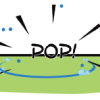
Big Bubbles
Source Institutions
How do you measure a bubble when it's floating? You can't really, but in this activity, learners can measure the diameter of the ring of suds a bubble leaves on a flat surface.
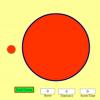
Estimation
Source Institutions
In this online activity, learners will explore size estimation in one, two and three dimensions. Multiple levels of difficulty allow for progressive skill improvement.
Tree Poker
Source Institutions
In this activity (p.14-15 of PDF), learners discover the concepts of competition and limiting factors as they relate to plant and animal communities.

Exploring Fabrication: Self-Assembly
Source Institutions
In this activity, learners participate in several full-body interactive games to model the process of self-assembly in nature and nanotechnology.
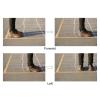
Kidbots
Source Institutions
In this activity, one person acts as a human robot while another acts as their developer by programming their actions.
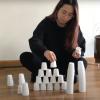
Cup Towers
Source Institutions
In this activity, learners explore different ways to stack cups to meet a personal goal.

Fuzzy Worms
Source Institutions
In this activity, learners explore the concepts of natural selection and observable traits in a game that can be played at home.
